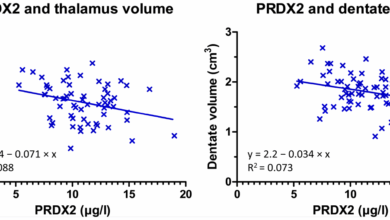
How social networks can help people with MS is a powerful tool for connection, support, and information. This exploration dives into the many ways online platforms are fostering communities, sharing resources, and empowering individuals living with Multiple Sclerosis. From connecting with others to managing symptoms, this post will cover the full spectrum of how social media can be a crucial part of the MS journey.
The benefits of social media for MS patients extend beyond simple communication. These networks offer a wealth of information, practical tips, and emotional support, creating a virtual space for sharing experiences and building resilience. This post will explore how to navigate the digital landscape safely and effectively, ensuring the online experience is a positive and enriching one.
Connecting with Others
Social media platforms have become increasingly important tools for connecting and supporting individuals facing chronic conditions like multiple sclerosis (MS). These networks offer a unique space for sharing experiences, finding support, and accessing crucial information. Connecting with others who understand the challenges of MS can be incredibly valuable in managing the emotional and practical aspects of the condition.This section explores how social media can facilitate connections for people with MS, focusing on specific platforms, communication strategies, and the role they play in accessing resources.
It will highlight the importance of supportive communities and how they can be leveraged to navigate the challenges of living with MS.
Specific Social Media Platforms for MS Support
Social media platforms provide a range of opportunities for connecting with others facing similar health challenges. Choosing the right platform depends on individual preferences and needs.
- Dedicated MS Support Groups on Facebook and other platforms offer a space for sharing experiences, advice, and emotional support. These groups often feature discussions on symptom management, treatment options, and navigating daily life with MS. Members can connect with others in similar situations, build trust, and foster a sense of community.
- Online forums and discussion boards, such as those found on websites specializing in MS, can provide detailed information and encourage peer-to-peer support. These platforms allow for deeper dives into specific topics, enabling more comprehensive discussions about treatments, therapies, and the challenges of living with MS. Members can pose questions, receive personalized advice, and share their own experiences in a structured environment.
- Instagram and other visual-centric platforms can be valuable for sharing personal stories and experiences. Visual content can help convey the emotional and physical impact of MS on daily life. These platforms also enable users to showcase resilience, connect with others, and promote awareness of the condition.
Facilitating Communication and Support
The ability to connect with others who understand the unique challenges of MS is crucial. These connections can provide emotional support, practical advice, and a sense of belonging. These interactions can be crucial for managing stress and anxiety associated with the condition.
- Open communication channels are vital for effective support. Platforms that encourage active participation, such as forums and discussion boards, foster a sense of community and shared understanding.
- Creating a safe space for open dialogue is essential. Moderation and clear guidelines can help maintain a supportive environment for individuals sharing their experiences and seeking advice.
- Encouraging active listening and empathy among members is crucial for fostering a supportive environment. This creates an environment where members feel valued and understood, which is critical for building trust and support.
Connecting with Resources and Experts
Social media can be a valuable tool for connecting people with MS to relevant resources and experts.
- Platforms can be used to promote awareness and encourage participation in research studies. This can facilitate the sharing of crucial information about MS and accelerate research efforts to improve treatments and outcomes.
- Social media can facilitate connections between individuals with MS and healthcare professionals or specialists. This connection can help individuals stay updated on the latest advancements in MS research and treatment. This is especially valuable for accessing information on rare or specialized treatments.
- Social media can be a powerful tool for promoting and disseminating information about MS resources, such as support groups, rehabilitation centers, and patient advocacy organizations. This is especially important for connecting individuals with resources in their local area or across geographical boundaries.
Comparison of Social Media Platforms for MS Support
| Platform | Features | Accessibility | User Reviews |
|---|---|---|---|
| Facebook Groups | Dedicated groups, discussion forums, photo sharing | Generally accessible, with options for various needs | Positive feedback for support and connection |
| Online MS Forums | Structured discussions, detailed information, specialized advice | Accessibility dependent on forum design | High user ratings for expert advice and information |
| Visual content, personal stories, awareness campaigns | High accessibility, visually engaging | Positive feedback for emotional support and awareness | |
| Specific MS-related Apps | Personalized tools, symptom tracking, community features | Accessibility dependent on app design | Positive reviews for user-friendly tools and support |
Information Sharing and Resources
Social networks offer a powerful platform for sharing information and resources related to multiple sclerosis (MS). This can be incredibly valuable for individuals living with MS, connecting them with a wealth of knowledge and support. By facilitating access to reliable information, social networks empower individuals to make informed decisions about their health and well-being. Crucially, this fosters a sense of community and shared understanding, mitigating isolation and promoting active participation in the MS journey.
Reliable Online Resources for MS
Sharing reliable resources is paramount for individuals with MS. Access to accurate and up-to-date information is vital for effective self-management and treatment decisions. These resources can be instrumental in guiding individuals through their MS experience. Here are some trustworthy online resources:
- National Multiple Sclerosis Society (NMSS): A comprehensive resource providing information on MS research, treatment options, support groups, and advocacy efforts. Their website offers articles, videos, and a wealth of tools to assist individuals with MS.
- National Institutes of Health (NIH): The NIH’s dedicated resources offer detailed information on MS research, clinical trials, and treatment guidelines. Their website serves as a critical hub for up-to-date scientific findings and clinical trials.
- Multiple Sclerosis Association of America (MSAA): The MSAA offers valuable resources, including support groups, advocacy efforts, and educational materials. Their resources are tailored to support individuals and families affected by MS.
- MS International Federation (MSIF): This international organization provides access to resources and information regarding MS, including research updates and policy initiatives. It fosters collaboration and knowledge-sharing among MS organizations worldwide.
Types of Information Shared on Social Networks
Social networks facilitate the dissemination of diverse information about MS. This sharing spans practical tips, research updates, and emotional support, creating a comprehensive support system for individuals with MS. The table below illustrates the variety of information shared.
Social networks can be surprisingly helpful for people with MS, connecting them with support groups and sharing valuable information. However, with recent revelations about Facebook and Instagram’s practices, the question arises about how much screen time is healthy for our kids. This makes me wonder if parents should consider limiting their children’s social media use, as discussed in this insightful article about the ethical concerns around social media use after facebook and instagram bombshells should parents keep kids off social media.
Ultimately, responsible social media use can be a positive tool for people with MS, as long as we approach it thoughtfully and with awareness of the potential pitfalls.
| Type of Information | Description | Examples | Purpose |
|---|---|---|---|
| Practical Tips | Advice on managing daily life with MS, such as strategies for fatigue management, mobility aids, and assistive technologies. | Tips for meal preparation, organization, and time management for those with MS. | To help individuals adapt to their daily lives effectively and enhance their independence. |
| Research Updates | Sharing the latest findings in MS research, clinical trials, and potential treatments. | Announcing new clinical trials or highlighting recent discoveries about MS mechanisms. | To provide individuals with the most current information about ongoing research and potential future treatments. |
| Emotional Support | Providing encouragement, understanding, and empathy to individuals dealing with the emotional challenges of living with MS. | Sharing personal stories, providing positive affirmations, or connecting individuals with support groups. | To foster a sense of community and belonging, mitigating feelings of isolation and promoting emotional well-being. |
Sharing Updates on Treatments and Research Findings
Social networks provide a platform for sharing updates on treatments and research findings, making this information readily accessible to a wider audience. This includes announcements of new therapies, research advancements, and details about clinical trials. This rapid dissemination fosters engagement and facilitates a proactive approach to the management of MS.
Accuracy and Reliability of Information
Social networks play a critical role in providing accurate and reliable information about MS. However, it is essential to be discerning and verify information from trusted sources. Critically evaluating the source and verifying the information with established medical organizations ensures that individuals with MS have access to accurate and reliable information.
Community Building and Support

Building a strong and supportive online community for people with MS is crucial. It provides a safe space for sharing experiences, offering mutual encouragement, and accessing vital resources. This sense of connection can significantly impact the well-being and quality of life for those navigating the challenges of MS.Creating a welcoming and inclusive online environment requires careful consideration of the needs and concerns of its members.
Strategies for fostering a supportive community need to be tailored to address specific challenges faced by people with MS, while also upholding the principles of respect, empathy, and understanding.
Strategies for Fostering a Supportive and Inclusive Community
A robust online community for people with MS should prioritize open communication, active listening, and a culture of respect. Transparency in the community’s guidelines and moderation policies is essential. This fosters trust and encourages members to participate openly and honestly.
- Establish clear community guidelines: Rules should be explicit, addressing issues like harassment, misinformation, and inappropriate behavior. These guidelines must be consistently enforced and transparent to all members.
- Promote diverse perspectives and experiences: Encouraging members to share their stories, experiences, and insights creates a rich and inclusive environment. This includes actively seeking out and welcoming voices from different backgrounds and stages of their MS journey.
- Organize regular online events and activities: Group discussions, Q&A sessions with healthcare professionals, and virtual support groups can provide opportunities for connection and engagement. Such events can foster a sense of community and provide avenues for shared learning and support.
- Highlight success stories and positive experiences: Sharing stories of resilience, coping strategies, and positive outcomes can inspire and motivate other members. This fosters a sense of hope and shared experience.
Common Challenges and Solutions, How social networks can help people with ms
People with MS face various challenges when interacting online. These include the fear of judgment, the pressure to conform to idealized narratives, and the need for support and understanding.
- Fear of judgment: Members might be hesitant to share their struggles or vulnerabilities due to concerns about being judged or criticized. To address this, the community should emphasize the importance of empathy and encourage a non-judgmental atmosphere. Promoting a culture of acceptance and shared experience can reduce this fear.
- Pressure to conform to idealized narratives: Some individuals might feel pressured to present a positive image of their MS journey, potentially hindering open and honest communication. Encouraging diverse perspectives and experiences, emphasizing that all journeys are unique, can help mitigate this pressure. Transparency about the reality of MS can reduce this issue.
- Need for support and understanding: People with MS often seek support and understanding from others who comprehend their challenges. Providing access to relevant resources and fostering connections with knowledgeable individuals can address this need.
Importance of Empathy and Understanding
Empathy and understanding are cornerstones of a supportive online community for people with MS. The ability to connect with and recognize the emotional experiences of others is critical for fostering a safe and inclusive environment.
- Active listening: Members should actively listen to and respond to others’ concerns, ensuring their perspectives are heard and validated.
- Validation of experiences: Emphasize that every experience with MS is unique and valid. This helps create a safe space for members to share their struggles without fear of judgment.
- Promoting respect for diverse perspectives: Encourage members to engage with differing viewpoints with respect and a willingness to understand varying experiences.
Different Approaches to Community Moderation
Effective moderation is essential for maintaining a healthy and supportive online community. Different approaches have varying benefits and drawbacks.
- Strict moderation: This approach involves actively monitoring conversations and removing potentially harmful content. While maintaining order, it can sometimes stifle open discussions and limit the free exchange of ideas. This can also cause some to feel unheard.
- Moderation with clear guidelines: Providing clear and transparent guidelines for acceptable behavior can prevent conflicts and promote respectful discourse. It allows for more flexibility while maintaining a healthy environment.
- Member-led moderation: Encouraging members to participate in moderation fosters a sense of ownership and responsibility within the community. This approach can promote a more collaborative and inclusive atmosphere, although it might require significant training and guidance.
Managing Symptoms and Well-being
Social networks can be powerful tools for managing the symptoms and overall well-being of individuals living with multiple sclerosis (MS). Connecting with others who understand the challenges of this chronic condition can provide invaluable support and practical strategies for navigating the ups and downs of daily life. Sharing experiences, finding resources, and fostering a sense of community are essential elements of effective symptom management.Living with MS often involves unpredictable fluctuations in symptoms.
The emotional toll can be significant, and finding supportive connections is crucial for maintaining mental and emotional well-being. Social networks offer a platform to share experiences, strategies, and coping mechanisms, thereby fostering a sense of belonging and shared understanding. This can lead to increased resilience and a greater ability to navigate the complexities of MS.
Examples of Symptom Management Support
Social networks provide various avenues for practical symptom management support. For example, individuals with MS can share their experiences with fatigue management techniques, discuss strategies for coping with spasticity, or find support groups for managing bladder or bowel dysfunction. This exchange of information and shared experiences can lead to discovering effective solutions that may not be readily available through traditional medical channels.
Social Networks as Support During Challenging Periods
Navigating challenging periods in MS is often easier with a supportive network. Social networks can provide a platform to share anxieties, fears, and concerns about symptom progression or potential complications. This shared vulnerability fosters a sense of community and mutual support. In times of crisis, social networks can provide encouragement, advice, and emotional support, acting as a buffer against feelings of isolation or despair.
People can offer encouragement, share resources, and simply listen to those going through difficult times.
Social networks can be a fantastic resource for people living with MS, connecting them with support groups and sharing valuable information. For example, knowing that getting the right amount of sleep is linked to a 42 percent lower risk of heart failure, as detailed in this article ( getting the right amount of sleep linked to 42 percent lower risk of heart failure ), highlights the importance of prioritizing well-being.
This can be discussed and shared on these platforms, helping individuals with MS manage their overall health and find support networks that cater to their specific needs.
Encouraging Healthy Coping Mechanisms
Social networks can be valuable tools for promoting healthy coping mechanisms. Sharing positive experiences, healthy lifestyle choices, and techniques for stress management can be incredibly inspiring. Groups dedicated to mindfulness, exercise, or healthy eating can help motivate and encourage individuals to adopt healthier habits. This collaborative approach can lead to improved overall well-being and a greater sense of control over their MS experience.
Social Media for Treatment Reminders and Encouragement
Social media platforms can be utilized for reminders and encouragement related to treatment plans. Individuals can create shared groups for reminders about medication schedules, physical therapy appointments, or dietary restrictions. This communal approach can provide accountability and support, ensuring that individuals remain committed to their treatment plans. Regular engagement and encouragement can significantly impact adherence and overall outcomes.
Potential Benefits and Risks of Using Social Networks for MS Symptom Management
| Potential Benefits | Potential Risks | Mitigation Strategies | Examples |
|---|---|---|---|
| Improved symptom management strategies | Misinformation and inaccurate advice | Verify information with healthcare professionals | Sharing experiences of managing fatigue |
| Enhanced emotional support and connection | Cyberbullying and negativity | Establish clear community guidelines | Connecting with others facing similar challenges |
| Increased access to resources and support groups | Exposure to stressful or overwhelming content | Set boundaries and prioritize self-care | Finding online MS support groups |
| Promoting healthy coping mechanisms and lifestyle choices | Comparison and unrealistic expectations | Focus on personal progress and avoid judgment | Sharing positive experiences of exercise |
Advocacy and Awareness
Social networks provide powerful tools for people with MS to advocate for better care and resources. Beyond personal support, these platforms can amplify individual voices, fostering collective action and driving change on a larger scale. This can lead to tangible improvements in research funding, awareness campaigns, and policy changes.The power of social media lies in its ability to connect individuals, share information rapidly, and mobilize communities.
This interconnectedness is crucial for people with MS, enabling them to share experiences, raise awareness, and collectively advocate for their needs. Through online platforms, individuals can amplify their voices, creating a ripple effect that can reach policymakers and the wider public.
Advocating for Improved MS Care and Research Funding
Social networks offer avenues for organizing and mobilizing support for increased research funding and improved MS care. People with MS can create online petitions, share stories, and participate in fundraising campaigns, thereby putting pressure on relevant organizations to prioritize MS care and research. By demonstrating the collective need for improved treatment and research, they can effectively advocate for their needs.
Examples include online fundraising campaigns supporting specific research initiatives or advocacy efforts targeting policy changes.
Raising Awareness About MS and Encouraging Early Diagnosis
Social media platforms can be utilized to disseminate information about MS, emphasizing the importance of early diagnosis. This includes sharing educational materials, articles, and videos. These campaigns can use engaging content to create broader awareness, emphasizing the importance of recognizing symptoms and seeking prompt medical attention. By raising public awareness about MS symptoms and highlighting the benefits of early diagnosis, social networks can potentially reduce the time it takes for individuals to receive an accurate diagnosis.
Organizing Online Campaigns and Events
Social networks facilitate the organization of online campaigns and events to promote MS awareness and support. These can include virtual awareness days, online fundraising drives, and webinars featuring experts. This is a crucial aspect of spreading information and generating support for the cause. For instance, a dedicated hashtag for an MS awareness day can create a unified online space for sharing information, experiences, and encouragement.
Engaging with Policymakers and the Public
Direct engagement with policymakers and the public through social media platforms is crucial. This involves sharing relevant research findings, contacting elected officials, and participating in online discussions. Social media can be used to create a dialogue with policymakers and the public. This includes sharing information about existing resources, raising awareness about policy needs, and engaging in conversations to promote understanding.
For instance, contacting representatives to advocate for specific legislation, participating in online forums or discussions to share personal stories, and using social media to share information about relevant research or clinical trials.
Navigating the Digital Landscape

The digital world offers incredible opportunities for connection and support, but navigating it safely and effectively is crucial, especially for individuals with MS. This section focuses on strategies to ensure online safety and security, while also highlighting potential pitfalls to avoid. Understanding the digital landscape is vital for maximizing the benefits of social networks while minimizing risks.
Online Safety and Security Strategies
Safeguarding personal information and well-being online is paramount. This involves employing strong passwords, enabling two-factor authentication, and being cautious about sharing sensitive personal details. Regularly reviewing privacy settings on social media platforms is also essential. Critically evaluating information encountered online is crucial, particularly for those susceptible to misinformation.
- Strong Passwords and Two-Factor Authentication: Use unique, complex passwords for each account. Two-factor authentication adds an extra layer of security, requiring a second verification step beyond a password. This significantly reduces the risk of unauthorized access.
- Privacy Settings Review: Regularly review and adjust privacy settings on social media platforms. Limit who can see your posts, messages, and other personal information. Consider using different privacy settings for different audiences.
- Caution Regarding Shared Information: Be mindful of what you share online. Avoid posting sensitive information such as medical diagnoses, medication schedules, or personal addresses. Consider the potential implications before sharing any personal details.
- Critical Evaluation of Information: Be a discerning consumer of online information. Verify information from multiple reliable sources before accepting it as factual. Be skeptical of sensationalized or overly dramatic claims, especially if they seem too good to be true.
Potential Pitfalls of Social Media Use
While social media can be beneficial, potential pitfalls exist, including cyberbullying and the spread of misinformation. Recognizing these risks is essential to protect mental well-being.
- Cyberbullying: Individuals with MS, like anyone else, can be targets of cyberbullying. Recognizing the signs of online harassment and knowing how to report it is critical. Having a support system to turn to in case of cyberbullying is also important.
- Misinformation: Misinformation regarding MS or its treatments can be easily spread on social media. It’s crucial to rely on credible sources and be wary of unsubstantiated claims. Cross-referencing information with trusted medical professionals is essential.
Importance of Privacy Settings and Online Etiquette
Proper use of privacy settings and online etiquette is essential for maintaining a positive online experience. Understanding these concepts can help avoid potential conflicts or misinterpretations.
- Privacy Settings: Appropriate privacy settings prevent unwanted exposure of personal information and facilitate a more controlled online experience.
- Online Etiquette: Respectful and considerate online interactions are vital for maintaining positive relationships with others.
Comparison of Social Media Platforms
Different social media platforms offer varying degrees of privacy and security features. Understanding these differences can help users choose platforms that best suit their needs.
Social networks are fantastic tools for people with MS (Multiple Sclerosis) to connect with others facing similar challenges. Sharing experiences, finding support groups, and even accessing valuable information about treatments and resources is incredibly helpful. However, the rise of digital health platforms also begs the question of whether the traditional model of healthcare, like the family doctor, is being affected by changing patient preferences.
This is a fascinating debate surrounding the shift to online healthcare, as highlighted in this article discussing whether are millennials killing the family doctor. Ultimately, social networks offer vital support, alongside other resources, in the ongoing journey of managing MS.
| Platform | Privacy Features | Security Features | Comments |
|---|---|---|---|
| Allows granular control over who can see posts, photos, and other content. Provides options for creating private groups. | Two-factor authentication available. Regular security updates and warnings. | Widely used, but privacy settings can be complex. | |
| Allows controlling who can see tweets. Privacy settings are relatively straightforward. | Two-factor authentication available. Regular security updates. | Excellent for news and information, but may be less secure for sensitive information. | |
| Offers privacy controls for posts and direct messages. Can create private accounts. | Two-factor authentication available. Regular security updates. | Popular for visual content, but may have less control over who sees your content. | |
| Privacy settings for profiles and posts. Control over who can connect. | Two-factor authentication available. Security features focus on professional networking. | Useful for professional networking and connecting with peers. |
Accessibility and Inclusivity
Social networks offer powerful tools for connection and support, but their effectiveness hinges on accessibility for everyone, including people living with MS. A truly inclusive platform recognizes the diverse needs and abilities of its users, making it a valuable resource for all. This crucial aspect ensures that no one feels excluded or marginalized due to their unique circumstances.Ensuring accessibility means creating a space where everyone with MS can participate fully, regardless of their physical limitations, technological proficiency, or communication preferences.
This encompasses a broad range of considerations, from website design to the content shared within the platform. By prioritizing inclusivity, we can foster a supportive and empowering environment where people with MS feel welcome and valued.
Importance of Accessible Design
Accessibility is paramount for social networks dedicated to supporting people with MS. It’s crucial to provide options for diverse needs, fostering a welcoming environment where everyone feels included and empowered to participate fully. This includes using assistive technologies and providing clear communication. By implementing inclusive design principles, we can ensure that everyone with MS can access information, connect with others, and contribute to the community.
Designing Inclusive Social Media Groups and Pages
Designing inclusive social media groups and pages involves several key strategies. Use clear and concise language, avoiding jargon or overly technical terms. Ensure images and videos have alternative text descriptions (alt text) to provide context for screen readers. Employ clear headings and formatting to improve readability for those using assistive technology.
Alternative Formats for MS Content
Alternative formats are essential for broader accessibility. Provide transcripts for videos and audio recordings to allow users with hearing impairments or those who prefer to read the content to access the information. Offer audio descriptions for images and videos to enhance understanding for visually impaired individuals. These additions make the platform usable for a wider audience.
Examples of Accessible Social Media Features
Several accessible social media features benefit people with MS. Using captions for videos is important, as is offering adjustable font sizes. Implementing keyboard navigation allows users to access all functionalities without a mouse. Live transcripts for live streams or discussions provide a text alternative for those with auditory processing challenges. Providing a ‘report content’ feature allows for easy feedback on problematic posts.
Finally, offering options for different communication styles (text, audio, video) can be incredibly beneficial for various MS-related needs.
Final Summary: How Social Networks Can Help People With Ms
In conclusion, social networks offer a powerful avenue for support and connection for people with MS. By fostering communities, sharing vital information, and providing tools for managing symptoms, these platforms can be invaluable allies in the MS journey. However, it’s crucial to use these resources responsibly and mindfully, prioritizing safety, privacy, and inclusivity. This blog post has highlighted the positive potential of social media while also acknowledging the importance of responsible online engagement.





